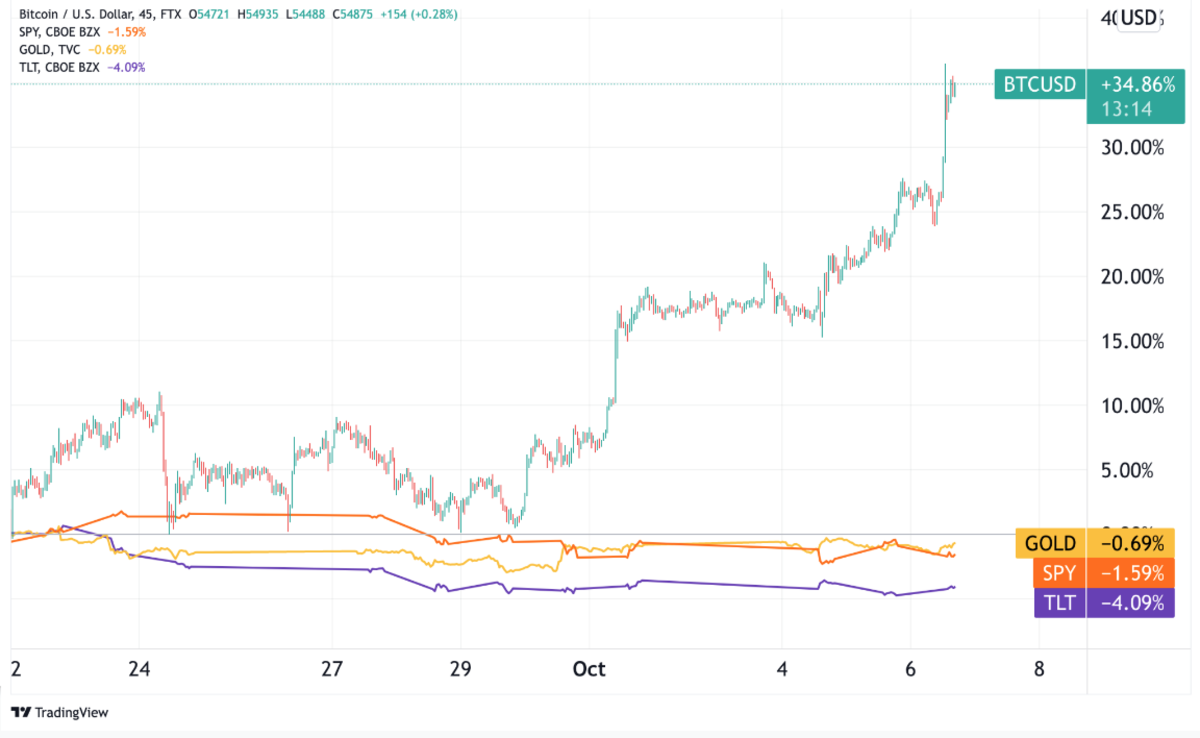The below is from a recent edition of the Deep Dive, Bitcoin Magazine's premium markets newsletter. To be among the first to receive these insights and other on-chain bitcoin market analysis straight to your inbox, subscribe now.
After a year of strongly correlated moves with the S&P 500 Index corrections, in the last few days bitcoin has shown the beginnings of a long-awaited decoupling point during an increasingly uncertain macro environment. Over the last few weeks, bitcoin has rallied 34.86% while gold, the S&P 500 and the market-weighted index of the U.S. Treasury debt with remaining maturities of 20 years or more (TLT) were all in negative territory.
Although one data point doesn’t give us statistical evidence that this narrative is now the new normal, every critic in the market will be watching today, as bitcoin shows life as an asset that can gain momentum when there’s growing concerns and volatility in the markets.

Source: Trading View
During a period of great macroeconomic uncertainty, the price action of bitcoin is notable to say the least, with a very clear vertical accumulation taking place in spot markets.
What makes the bitcoin price action even more impressive is that it's occurring at the same time as a downgrade of forecasted Gross Domestic Product output happening around the world. Using the Atlanta Federal Reserve as an example, their 2021Q3 GDP estimate has declined from over 6.3% to 1.3% in just 70 days. The monetary and fiscal policy economic fuel provided to the market doesn’t seem to be having the same stimulative effects.
This is not a United States-specific problem. For China, “Goldman Sachs has cut China's economic growth forecast for 2021 to 7.8%, from 8.2%, as energy shortages and deep industrial output cuts add "significant downside pressures."
While it is true that bitcoin remains mostly an uncorrelated asset, during periods of risk off, bitcoin historically has not been immune as U.S. dollar strength means weakness for the BTC/USD pair, which is why the recent developments are so bullish.










